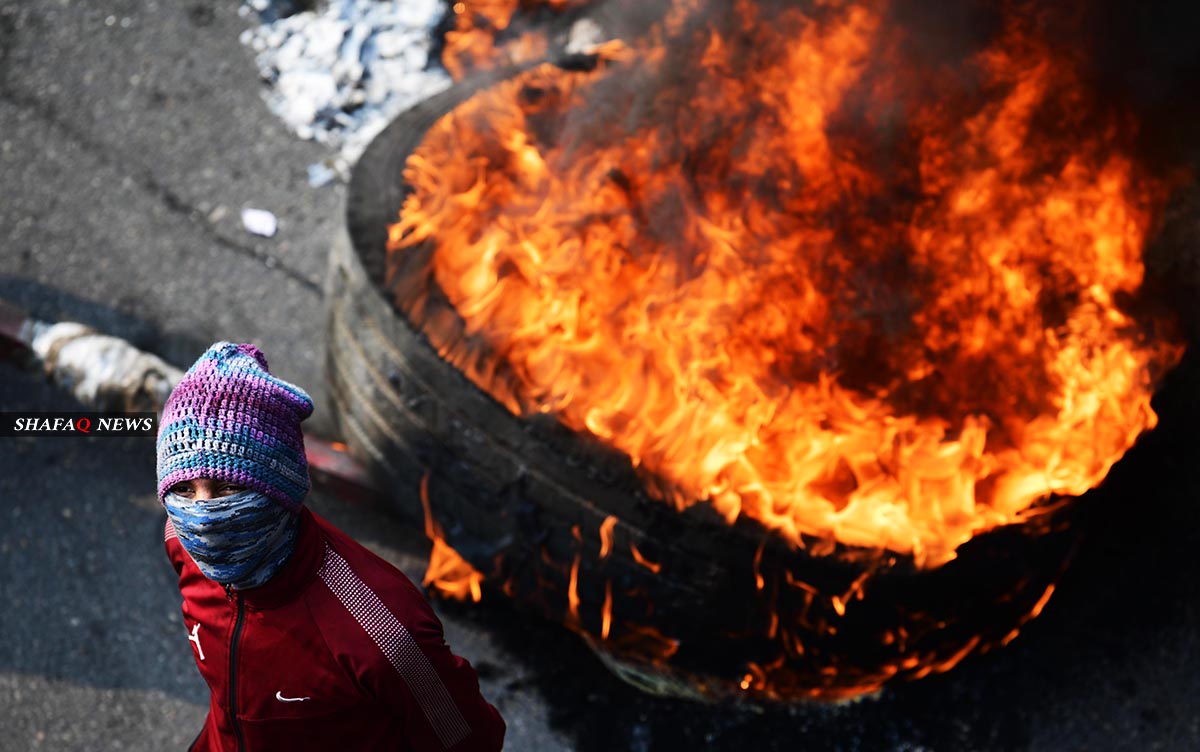Iraq is cursed with its wealth .. so what to do? The World Bank answers
 Shafaq News / Two experts at the World Bank warned that Iraq is afflicted with a double curse through a mixture of government corruption and a sick private sector.
Shafaq News / Two experts at the World Bank warned that Iraq is afflicted with a double curse through a mixture of government corruption and a sick private sector.
In a report by the American Brookings Institution, translated by Shafaq News, the two economists at the World Bank, Bledi Chiliku and Wael Mansour, said that the resource curse refers to countries rich in their resources in obtaining the benefits of their national wealth. “Countries damned by their resources” tend to fall into conflict, corruption and economic turmoil.
The experts pointed out that in countries such as these, competition diminishes when the real exchange rate increases, governments adopt repeated fiscal policies, dependence on commodities expands, and exposure to external shocks increases.
And they considered that there may be curses less destructive than the mixture of the corrupt government and the sick private sector, and unfortunately, Iraq is completely connected to this curse, as a recent report showed.
The “Brookings” report stated that the oil wealth of Iraq has allowed it to be in a position to achieve income at a high – medium level, but its institutions and the socio-economic results that it records indicate a low and fragile country.
He pointed to growth being driven by oil production and associated investment, not by productivity. The educational system, which was once at the top of the ranks at the Arab level, is now placed at the bottom of the list.
Iraq has one of the lowest rates of female participation in the workforce in the world, while the unemployment rate among young people is 36 percent, suffers from deteriorating infrastructure and working conditions, and ranks one of the poorest among the countries of the high-middle economies.
The recent conflicts have had a significant economic cost, as the level of GDP in 2018 was 20 percent lower, due to the ISIS war.
Nearly two decades after the 2003 war, Iraq is still caught in the trap of fragility and facing increasing political and social unrest. Amid multiple crises, including the oil shock and the Covid-19 epidemic, in addition to the results of poor economic policies, and the inability to address corruption, Iraq is now facing the worst performance in its annual growth in 2020 since the fall of Saddam Hussein.
The two experts at the World Bank considered that there is a consensus that sustainable growth, job creation and improvement of the standard of living for Iraqis all require peace and stability, reducing dependence on oil and directing the state towards a market in which it relies more on the private sector, strengthening regional integration, and improving the general management of oil revenues.
While these goals remain in place from a technical point of view, successive attempts to achieve them by the government and donors have remained elusive. The two economists said, “We believe, mainly, that this is because the reform programs in Iraq are outside a strong political framework.”
The two experts believed that in order to understand the fragility, violence and limited development, careful analysis of the political system in the country, the nature of the social contract and social divisions in society is required.
They suggested that the best way to do this is through an analytical framework that looks at three competing levels: between political elites, between state and society, and between social groups. Applying this framework to fragile states suffering from conflict and violence helps them understand why reforms have not gone wrong.
As for Iraq, these three levels have turned violent in recent history. Conflict erupted over competition for power and resources. And Iraqi elites have exploited ethno-sectarian divisions in their quest for power. Also, large foreign interventions reinforced these lines of division and turned Iraq into a field for greater geopolitical competition.
In addition, the heavy dependence on oil has strengthened conflicts at all levels, exacerbated competition among elites, and undermined the principle of holding the state accountable for its responsibilities to the people. Also, the oil wealth reduced the incentives to collect other types of revenues for the government, especially from taxes. This, in turn, weakened the need for the principle of compromise – accountability between the state and society, which forms the basis and essence of state building processes.
While 64 percent of Iraqis say the country is divided, the political balance will become more fragile in the coming years in light of the available demographic data. In Iraq, one of the largest proportions of youth in the world, and a regional gap in terms of poverty rates and service provision. Homogeneity and social trust are low in the areas liberated from ISIS, while poverty rates are greater in the south, despite the fact that it pumps the majority of oil wealth.
In conclusion, the two economists asked what could be done at the level of change in thinking, and indicated three aspects: a political refocusing that includes all social groups, a re-action of the social contract in a way that enhances confidence, and a review of the economic model to be more diversified.
Progress in Iraq will be elusive unless the political elite stimulates change through an alliance between elites and people, and this country has a common political vision that recognizes the need for a system that provides development for all Iraqis. For the sake of the social contract, there is a need to build trust between citizens and the government, strengthen institutions, strengthen citizens’ involvement in infrastructure and services, and find the way for an investment climate that creates jobs for young people. There is a need to invest in people first, develop infrastructure and strengthen institutions in providing social services to citizens, and organize the macro-economy and the work of the private business sector
